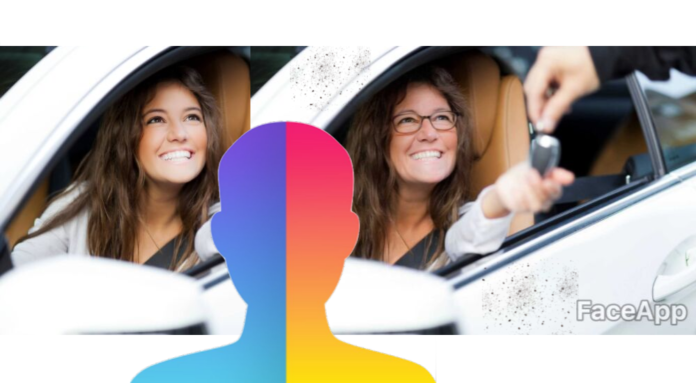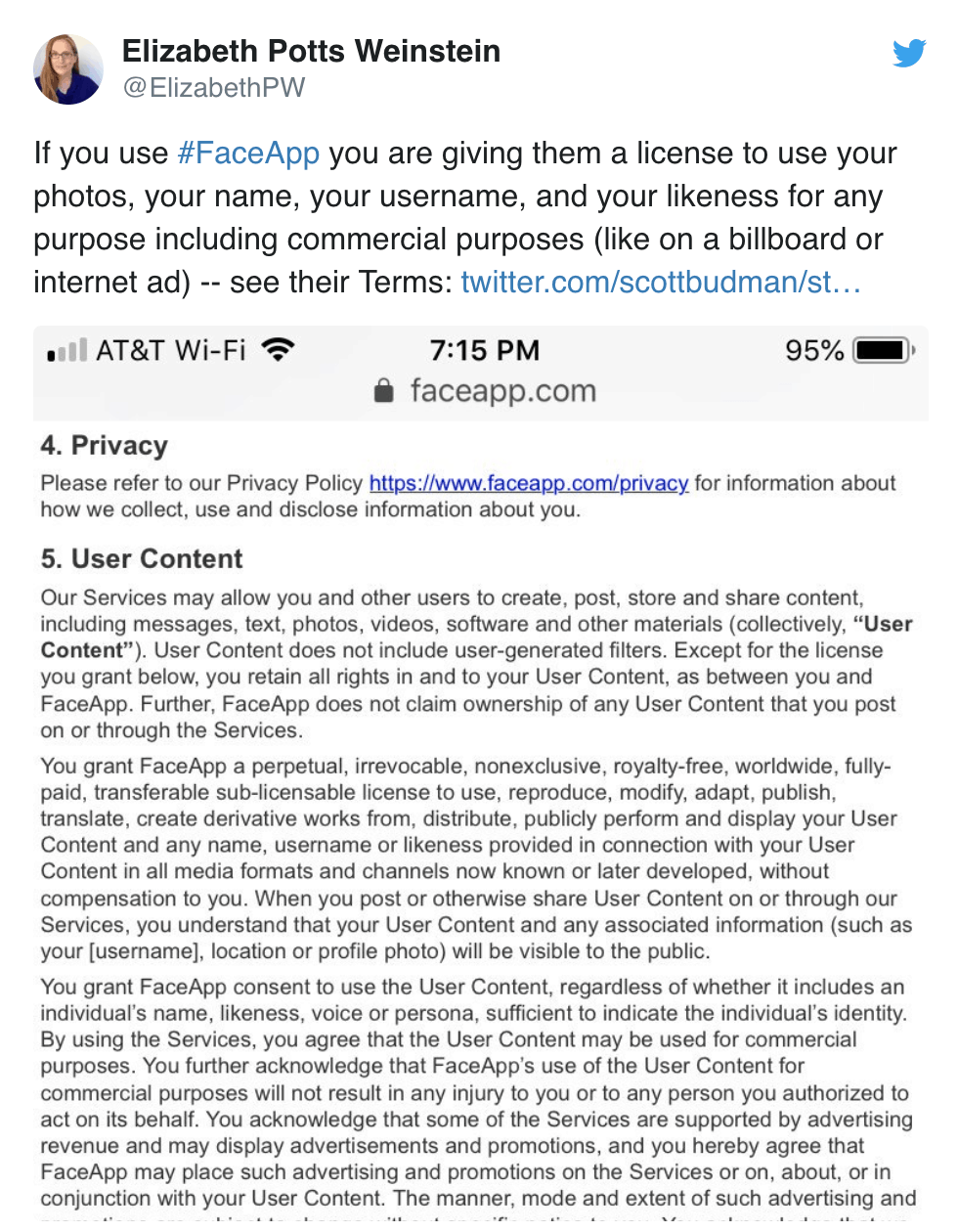If you’re anything like us, over the last week your Facebook newsfeed has begun to look like a ‘Who’s Who’ of local nursing homes with your friends, family, and acquaintances using FaceApp to transform themselves into aged versions of themselves. Also, if you’re anything like us, it had gotten pretty damn annoying after about an hour. And while FaceApp (as well as the social media ‘aging challenge’ it has inspired, for the second or third time since 2017) is nothing new, this most recent round of use has introduced all sorts of warnings, conspiracy theories, hysteria and…yes…indifference.
Such warnings indicate that the licensing agreement (which users accept in order to authorize the app to operate on their smartphones) grants the creators of FaceApp irrevocable license to use your likeness and your social media photos in any way they see fit. This, of course, makes sense since, any app available at zero cost to users, means that the users themselves are the product which is being sold to a third-party source. To put that statement into context, it is why Facebook users are subjected to digital marketers, and why your Google and Amazon searches (as well as your private conversations) seem to make their way into your newsfeed. Facebook charges us nothing but sells all of us to paying advertisers. That said, it’s not unreasonable that photo pirating could make advertising far more cost-effective for companies. It would allow them to use existing photography, rather than pay for actors, models, and photographers.
And while I doubt that my fat ass would benefit any business plastered across a billboard, nor would it prove sexy in pornography, it’s easy to understand why so many people were suddenly concerned. It comes down to the invasion of privacy, and a reminder that access to our smartphones could expose more than just our photos. This concern was only furthered when it was revealed that FaceApp was developed by a Russian tech company. In fact, the Democratic National Committee released a memo last Wednesday to all 2020 Presidential Campaigns, urging staffers to delete the app out of security concerns, indicating it could compromise data.
And while analysis by multiple sources have verified the claims made by FaceApp CEO Yaroslav Goncharov – that the only file accessed during use is the photo selected – many are still suspicious. Others, however, simply don’t give a f*ck, and keep on posting their geriatric photos. In fact, let’s be honest, I haven’t seen this many bone-worthy grandmas since my eight-year-old self experienced a very confusing erection thanks to Rue McClanahan from The Golden Girls. Hey. Don’t judge me.
But where does FaceApp go from here? According to the CEO, a new version of the app is getting ready to be released, and it’s targeted at the automotive market.
“The app will take everything that’s fun and insightful about the original FaceApp, but transfer it to the automotive space. Maybe you’d like to view a vehicle in a different color. Simply upload a picture of the video, and we can show you. You can view it with different rims, or a different color interior. Perhaps you’re considering a used vehicle, and want to see how it would have looked brand new. Maybe you want to see how a shiny new vehicle will look a few years down the line once the factory polish and new car smell are gone,” explains Goncharov. “And it’s more than just wear and tear. Anyone could picture that in their mind’s eye. The new FaceApp will allow you to see what your car will look like with things shoved carelessly above your sun visor, in your glove compartment or center console. Curious as to how a new vehicle will look with a car seat in the back, concealing all sort of spilled snacks and mildewing liquids? We can help. How about scuff-marks on the hard-touch surfaces? Loose French fries under the seat? Or a backseat floor full of partially drank, sun-spoiled water bottles?”

And while Goncharov and the team at FaceApp believe that this new feature will help users to appreciate new and lightly-worn vehicles in their current state, the auto industry isn’t so sure.
As stated by an anonymous source at General Motors, “How many of us would choose a different partner, if we could look into the future and see who they would become? The extra pounds, the wrinkles, the loss of life’s spark over time? It’s unnatural. Automotive sales are a lot like first dates or the honeymoon period of a new relationship. We deal in the illusion of a promising tomorrow, without too many questions. This app would really compromise our ability to sell that illusion.”
It’s an interesting argument. Then again, what do I know? I’m a guy who may – or may not – have ‘rubbed one out’ to Blanche Devereaux on more than one occasion over the last 35 years. But then I think, with infotainment systems being what they are these days, what would stop my younger self from doing inside of a family vehicle? Thinking logically, it’s a higher probability than my fat ass dropping a French fry. Will FaceApp take THAT kind of wear and tear into consideration? Because if I’m looking into buying a brand new car, and FaceApp showed me a picture of its interior covered in semen-yet-to-come, it might seriously hinder my enthusiasm regarding that purchase.
Wait, did I get off-topic?
I think the moral to this story is, “Don’t waste French fries.”













